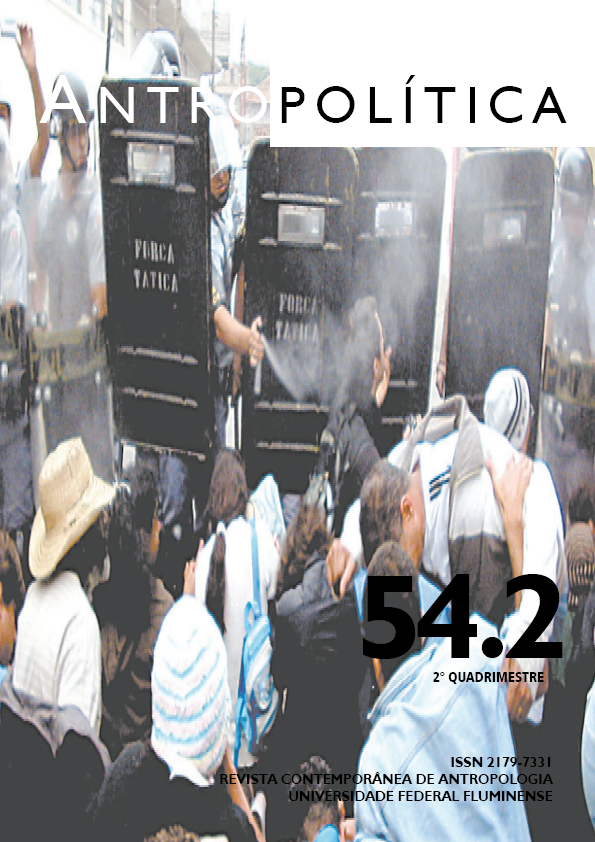“Me conte a historinha”: controvérsias em torno da produção de justiça
DOI:
https://doi.org/10.22409/antropolitica2022.i2.a48658Palavras-chave:
Lei Maria da Penha, Produção de justiçaResumo
O objetivo principal deste trabalho é descrever a produção da justiça a partir da Lei nº 11.340/2006, conhecida como Lei Maria da Penha, por meio de uma pesquisa de campo realizada no Juizado de Violência Doméstica e Familiar contra a Mulher (JVDFM), em uma cidade do estado de Santa Catarina. A partir da descrição das chamadas audiências de instrução e julgamento, foi possível perceber que havia um “duplo devir” originado do cruzamento entre distintos significados atribuídos à questão do Promotor de Justiça (“me conte a historinha”), ou seja, havia nessas audiências uma controvérsia explicitada por meio da busca pela verdade (devir-verdade) e a busca pela justiça (devir-justiça). Juntas, essas buscas apontavam para a constituição de agenciamentos que, por um lado, pareciam paradoxais, mas, por outro lado, demonstravam possíveis pontos de tangência. Salienta-se que este trabalho não pretende esgotar a matéria, mas elucidar um panorama social vigente a fim de incentivar a reflexão sobre o tema.
Downloads
Publicado
Edição
Seção
Licença
Copyright (c) 2022 Ísis de Jesus Garcia

Este trabalho está licenciado sob uma licença Creative Commons Attribution 4.0 International License.
O conteúdo da revista Antropolítica, em sua totalidade, está licenciado sob uma Licença Creative Commons de atribuição CC-BY (http://creativecommons.org/licenses/by/4.0/deed.pt).
De acordo com a licença os seguintes direitos são concedidos:
- Compartilhar – copiar e redistribuir o material em qualquer suporte ou formato;
- Adaptar – remixar, transformar, e criar a partir do material para qualquer fim, mesmo que comercial;
- O licenciante não pode revogar estes direitos desde que você respeite os termos da licença.
De acordo com os termos seguintes:
- Atribuição – Você deve informar o crédito adequado, fornecer um link para a licença e indicar se alterações foram feitas. Você deve fazê-lo em qualquer maneira razoável, mas de modo algo que sugira que o licenciante o apoia ou aprova seu uso;
- Sem restrições adicionais — Você não pode aplicar termos jurídicos ou medidas de caráter tecnológico que restrinjam legalmente outros de fazerem algo que a licença permita.


